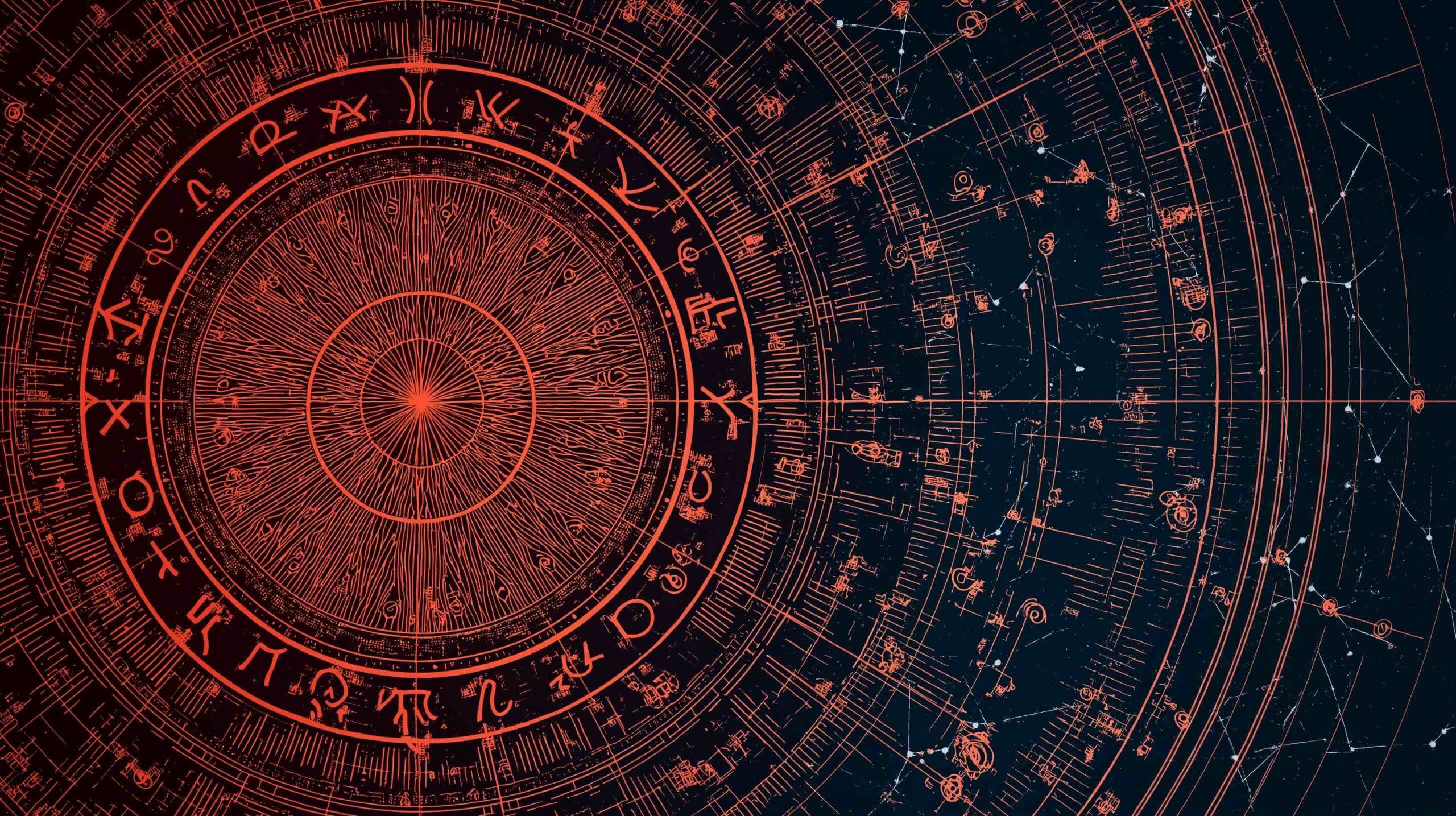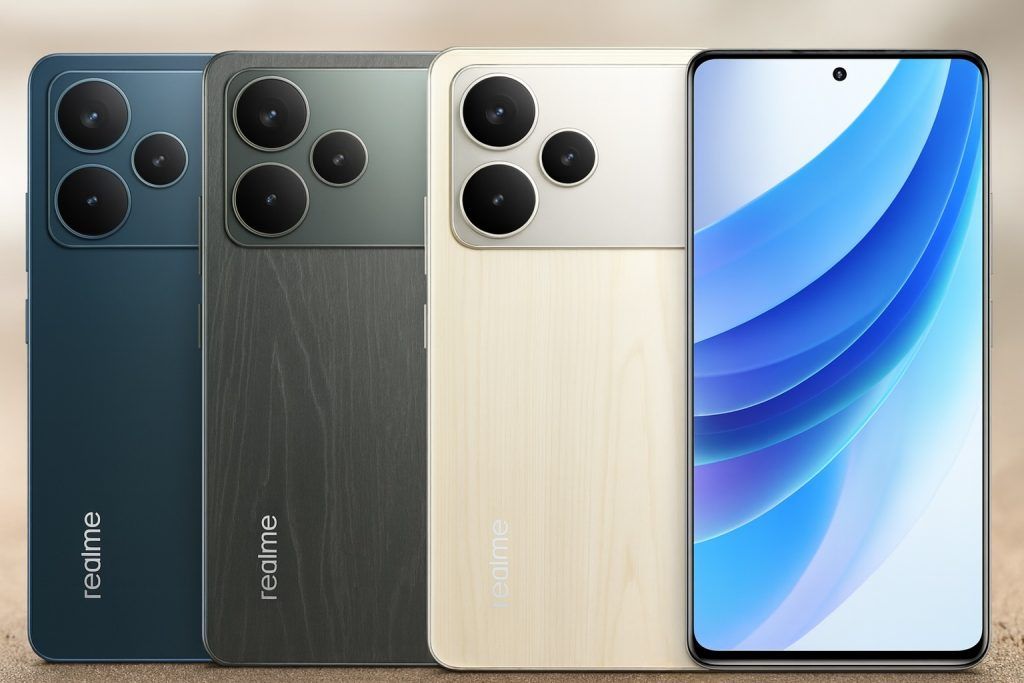- Co–Star, launched in 2017, uses NASA data combined with AI to generate real-time, hyper-personalized horoscopes and had over 30 million accounts by 2023 with more than 1 million daily active users.
- The Pattern’s AI analyzes natal charts to deliver detailed interpretations focusing on love, career, health, and personal growth, with more than 10 million downloads and 8 million monthly active users.
- Sanctuary blends AI-generated daily readings with live astrologers, has over 7 million downloads and about 3 million monthly users, and partnered with Marriott’s Moxy Hotels in 2024 for astrological travel tips.
- AstroTalk, based in India, claims over 40 million users and reportedly surpassed ₹1,000 crore (~$138 million) in revenue in 2024, supporting Vedic astrology, kundali generation, and tarot, with more than 15,000 live astrologers.
- AstroSage offers AI horoscope readings, AI Kundli generation, and AI astrologers, with over 500,000 professionals using its tools and projected revenue of about $138 million in 2024.
- Nebula was the most downloaded U.S. astrology app in 2020, had 3.9 million new downloads in 2023, reached 12 million total downloads by 2024 and 4 million monthly active users, with annual revenue over $7 million.
- TimePassages (Astrograph) has over 6 million downloads and about 800,000 daily active users, and uses AI to generate daily, weekly, and monthly horoscopes plus transit interpretations, aiming to be a reliable platform.
- From 2023 to 2025, generative AI went mainstream in astrology: GPT-3/4 chatbots were integrated, Co–Star launched Ask the Stars in 2023, and other apps released AI horoscope chatbots and GPT bots on platforms like Character.AI and WhatPlugin by 2024.
- The India market for astrology apps was worth about $163 million in 2024 and is forecast to surge tenfold to $1.8 billion by 2030, with AstroTalk and AstroSage serving tens of millions with multilingual services.
- Ethical and scientific concerns include that astrology lacks scientific evidence, AI can amplify the Barnum effect and produce dangerous or misleading readings, prompting calls for guidelines, content labeling, and heightened privacy protections.
Astrology is undergoing a high-tech renaissance. Millions of people now turn to smartphone apps and websites where artificial intelligence (AI) algorithms generate daily horoscopes, analyze birth charts, and even answer life questions on demand. This report explores how AI is being woven into the fabric of modern astrology – from AI-generated horoscopes and compatibility readings to chatbots acting as virtual astrologers – and examines the key players driving this trend. We’ll also look at who’s using these services, recent developments in 2024–2025, and the ethical and scientific questions that arise when algorithms attempt to divine our cosmic fate.
How AI Is Transforming Astrology Platforms
AI has become the secret sauce in many popular astrology platforms, enhancing their ability to provide personalized and real-time astrological guidance. Key integrations include:
- Automated Horoscope Generation: Advanced algorithms now churn out daily, weekly, and monthly horoscopes tailored to each user’s unique birth chart. Apps like Co–Star use a “natural-language engine” with NASA space data and astrologer input to algorithmically generate insights for users medium.com theatlantic.com. These AI systems analyze planetary movements relative to a user’s birth details to produce hyper-personalized messages, simulating how a human astrologer would write a horoscope thewildcattribune.com. By crunching vast celestial datasets, AI can deliver detailed forecasts instantly, at any hour of the day.
- Birth Chart Analysis and Interpretation: Interpreting an individual’s natal chart (the map of the sky at their birth) is a complex task that AI is learning to handle. Automated natal chart generation tools can now compile a full birth chart and generate in-depth reports within seconds imgglobalinfotech.com. Machine learning models trained on astrological texts are being used to translate a chart’s symbolic patterns into readable personality profiles and life advice. For example, the Chani app employs AI to create detailed birth chart analyses covering love, career, health and more analyticsinsight.net. This allows users to get instant, customized readings rather than waiting for a human astrologer.
- Compatibility and Matchmaking Algorithms: AI is also helping people check their cosmic chemistry. Many apps offer compatibility reports by comparing two birth charts. These algorithms assess the alignments between partners’ planetary positions and generate relationship advice or “match scores.” Co–Star, for instance, shows users charts of how compatible they are with their friends based on birth data theatlantic.com. The Pattern app goes further, using a proprietary algorithm to highlight personality dynamics and compatibility insights between people – effectively an AI relationship advisor analyticsinsight.net. By analyzing thousands of astrological factors, AI can identify meaningful patterns (or at least convincing ones) that might be missed by a simple sun-sign comparison.
- Real-Time Transit Updates and Predictive Modeling: Traditional horoscopes can quickly become outdated as planets move. AI systems now process real-time astronomical data – such as planetary transits, retrogrades, and moon phases – to push timely alerts and advice to users imgglobalinfotech.com. For example, an app might notify you that “Mars is now squaring your Venus – expect some romantic tension today.” Some platforms employ predictive analytics to anticipate major life events by correlating users’ personal data with planetary cycles imgglobalinfotech.com. While the notion of “predicting a new job or relationship using AI” remains scientifically unproven, these features present astrology in a forward-looking, data-driven light. They aim to give users a heads-up on upcoming cosmic influences so they can plan or make decisions accordingly.
- AI Chatbots as Virtual Astrologers: Perhaps the most striking development is the rise of astrology chatbots – AI-driven assistants that answer users’ direct questions. In early 2023, Co–Star introduced an “Ask the Stars” feature, essentially a chatbot that lets users type any personal question and receive an astrological answer powered by OpenAI’s GPT language model theatlantic.com theatlantic.com. It’s like a modern Magic 8 Ball: for a small fee, you can ask “Have I met my soulmate?” or “Should I quit my job?” and get a seemingly tailored reply combining your birth chart and astrological lore theatlantic.com. For example, when one user asked if they’d met their soulmate, the AI confidently replied “No,” and even gave context about a planetary opposition affecting their relationships theatlantic.com. Other services have followed suit – AI “astro assistants” on platforms like AstroSage can chat in natural language, explaining complex chart aspects or offering guidance at any time astrosage.com. These bots leverage natural language processing to make the experience interactive, holding a conversation much like a human astrologer would (minus the human touch).
Behind the scenes, these AI features rely on large datasets of astrological knowledge and often the same large language models that power tools like ChatGPT. Co–Star’s team, for instance, built a proprietary database of astrological interpretations over five years “by poets, astrologers, and technologists”, which the AI draws on for its responses theatlantic.com. This blending of human-curated wisdom with machine learning allows apps to serve up instant, personalized cosmic advice to millions of users simultaneously.
Leading AI-Powered Astrology Apps and Services
A number of astrology apps and websites have become household names in this new AI-driven astrology boom. Here are some of the key players and what they offer:
- Co–Star: Arguably the poster child of AI astrology, Co–Star launched in 2017 and pioneered the use of algorithms for “real-time, hyper-personalized” horoscopes analyticsinsight.net. The app pulls NASA planetary data and combines it with AI to simulate the style of a professional astrologer thewildcattribune.com analyticsinsight.net. Co–Star’s edgy daily horoscopes and snarky “Do’s and Don’ts” lists have attracted a massive user base – over 30 million accounts as of 2023 businessinsider.com. The average user is just 18–25 years old businessinsider.com, reflecting astrology’s popularity with Gen Z. Co–Star has more than 1 million daily active users and a strong retention rate analyticsinsight.net. In 2023 it rolled out the Ask the Stars AI chatbot feature, leaning further into generative AI for on-demand advice theatlantic.com. “Co–Star has employed AI since the company was founded,” notes CEO Banu Guler, referring to its early days of stitching together horoscope text from databases, and the company has collaborated with OpenAI’s tech for years theatlantic.com. With venture backing and a devoted following, Co–Star exemplifies how tech and mysticism have fused into a viral product.
- The Pattern: Another hugely popular app, The Pattern is known for its uncannily insightful personality and relationship readings powered by your birth chart. Rather than traditional horoscopes, The Pattern provides deep-dives into personal growth cycles and compatibility. Its AI-driven algorithm analyzes natal charts to reveal “detailed interpretations… making it stand out among its peers” analyticsinsight.net. The app gained notoriety for its accuracy – even celebrities were startled by it – and it now has over 10 million downloads and 8 million monthly active users analyticsinsight.net. The Pattern focuses on helping users understand their emotional patterns and timing in life, something it achieves by crunching astrological data through a psychological lens. It’s frequently cited alongside Co–Star as a top app “leveraging AI and big data to deliver highly personalized readings” prnewswire.com.
- Sanctuary: Sanctuary takes a hybrid approach – it offers AI-generated daily readings and astrology content, but also the option to chat live with human astrologers and psychics. Branded as “Sanctuary Astrology & Psychic”, this app has an AI-driven interface delivering real-time horoscopes and transit updates imgglobalinfotech.com analyticsinsight.net, while users can also purchase live readings from professional astrologers. Sanctuary has over 7 million downloads and about 3 million monthly users, and has become especially popular among millennials and Gen Z who enjoy its on-demand insights analyticsinsight.net. By blending machine and human insight, Sanctuary positions itself as a one-stop astrology hub. It even ventured into travel astrology recently – partnering with Marriott’s Moxy Hotels in 2024 to offer “astrological travel” tips for guests, using birth charts to suggest travel recommendations (an example of astrology’s expanding cultural reach) forbes.com. Sanctuary’s success as one of the first VC-backed astrology startups shows how the field has gone mainstream latimes.com.
- AstroTalk: While less known in the West, India-based AstroTalk is one of the largest astrology platforms in the world. It connects users with 15,000+ live astrologers for consultations, but also incorporates AI for generating instant horoscope content imgglobalinfotech.com. AstroTalk claims over 40 million users to date – a staggering figure – and reportedly surpassed ₹1,000 crore (~$138 million) in revenue in 2024 imgglobalinfotech.com. The platform supports Vedic astrology, kundali (birth chart) generation, tarot, and more. Its blend of human expertise with automated horoscope feeds has tapped into enormous demand, especially in India’s tech-savvy, astrology-friendly market. As one industry report noted, “AstroTalk has had more than 40 million users… and in 2024, exceeded $138 million in revenue” imgglobalinfotech.com, putting it at the forefront of the global astrology boom.
- AstroSage: Another powerhouse from the Indian market, AstroSage has introduced a full suite of AI astrology services. On AstroSage’s platform you can get “personalized AI horoscope readings, AI Kundli (birth chart) generation, and even consultations with AI astrologers” – essentially a chatbot astrologer astrosage.com. This service uses cutting-edge AI technology to analyze vast amounts of astrological data and deliver customized predictions astrosage.com. AstroSage is widely used by professional astrologers as well; over 500,000 pros globally use AstroSage’s tools imgglobalinfotech.com. The company is profitable, expecting $138 million in revenue in 2024 from its apps and software imgglobalinfotech.com. By combining the “wisdom of traditional astrology with the power of AI” astrosage.com, AstroSage appeals to both everyday users and practitioners looking to augment their work with technology.
- Nebula: Nebula is a Western-oriented app that has surged in popularity recently. It utilizes AI to offer daily and monthly horoscopes, compatibility reports, and personalized advice. Nebula was the most downloaded astrology app in the U.S. in 2020 and amassed about 3.9 million new downloads in 2023, with annual revenue over $7 million imgglobalinfotech.com. By 2024 it reached 12 million total downloads and 4 million monthly active users analyticsinsight.net. Nebula’s AI engine focuses on tailoring content to each user’s profile, and its premium features (like detailed relationship readings) have attracted a growing audience analyticsinsight.net. The app emphasizes trust and accuracy, positioning its AI-generated guidance as “highly personalized and accurate” to keep enthusiasts coming back analyticsinsight.net.
- TimePassages (Astrograph): TimePassages is a long-running astrology software that has successfully integrated AI to stay relevant. Famous for its detailed birth chart reports, the app now uses AI to help generate daily, weekly, and monthly horoscopes and interpret transit influences. It has over 6 million downloads and around 800,000 daily active users, many drawn to its depth of information analyticsinsight.net. By adopting AI, TimePassages (under the Astrograph brand) continually learns from user feedback to improve its predictions, aiming to be “one of the most reliable platforms for astrology enthusiasts” analyticsinsight.net. This demonstrates how even established astrology services are evolving with AI to meet modern expectations.
Other notable names: Astrology Zone, the popular site/app by astrologer Susan Miller, has over 9 million users and also uses AI to help deliver timely, data-informed forecasts analyticsinsight.net. Chani, based on astrologer Chani Nicholas’s work, uses AI for personalized readings and has a loyal following (~5 million users as of 2024) analyticsinsight.net. There are even experimental projects like AI Astrologer GPTs – custom chatbot instances that hobbyists create to answer astrology questions using GPT models whatplugin.ai. From sleek VC-funded apps to decades-old software modernized with machine learning, the entire astrology sector is leaning into AI.
Surge in Popularity – Who’s Using AI Astrology and Why?
The marriage of astrology and AI has dramatically broadened astrology’s appeal, especially among younger generations. Astrology apps have exploded in popularity in the past few years, turning an ancient practice into a thriving digital industry. In 2020, magazines observed a 150% jump in horoscope page views compared to the year before scientificamerican.com. By 2023–2024, the astrology app market was valued around $3 billion and projected to triple to $9 billion by 2030, thanks in part to AI-driven personalization and the wellness trend prnewswire.com prnewswire.com.
Who are the driving forces behind this boom? Primarily millennials and Gen Z users. These demographics have flocked to astrology apps as a form of spiritual and self-care practice. A whopping “nearly 80% of millennials and Gen Z in the U.S. use personalized horoscopes for decisions related to careers, relationships, and finances,” according to recent industry research prnewswire.com. While that figure might be optimistic, it underscores a real trend: young adults increasingly turn to the zodiac for guidance in an uncertain world. “It’s popular with the demographic that has embraced astrology in recent years to cope with the stress of day-to-day life or even in lieu of religion,” notes one report businessinsider.com. In fact, many users see astrology as a more personal, less dogmatic spiritual outlet. “There’s been a loss of geographically rooted or religious identity, which has led to a rise in mobile and fluid chosen identities,” explains Gen Z venture capitalist Paige Doherty, discussing why apps like Co–Star resonate with her generation businessinsider.com.
The user base skews young, but it’s vast and global. Co–Star’s 30 million accounts are largely teens and 20-somethings businessinsider.com. Sanctuary’s audience is likewise “especially among millennials and Gen Z” analyticsinsight.net. Astrology’s revival isn’t limited to the West – it’s worldwide. In India (a country with a rich astrology tradition), astrology apps are undergoing meteoric growth, fueled by smartphone adoption. The India astrology app market was worth $163 million in 2024 and is forecast to surge 10x to $1.8 billion by 2030 prnewswire.com. Companies like AstroTalk and AstroSage boast tens of millions of users by catering to this demand with multilingual, culturally-tailored services. Improved internet access and social media have further propelled interest in astrology among youth in places like India, China, and beyond.
Social media itself has been a catalyst. On TikTok and Instagram, #AstroTok and astrology meme accounts have garnered billions of views prnewswire.com. Short videos explaining birth chart traits or Mercury retrograde go viral regularly. This online buzz drives people to download apps for more personalized content. Celebrities and influencers openly discuss their signs and use astrology apps, lending further credibility and cool-factor. All of this has normalized astrology for a generation that might never have read a newspaper horoscope, but religiously checks an app for their daily cosmic outlook.
It’s worth noting that not everyone using these apps fully believes in astrology – many enjoy it as a form of entertainment or introspection. According to a Pew Research survey, about 27% of Americans overall believe the positions of celestial bodies affect people’s lives theatlantic.com. But the proportion is higher among young adults, and even those who say they don’t strictly believe may still find value or comfort in the practice. In a 2012 survey, 34% of Americans (and a higher share of young people) even called astrology “sort of scientific,” reflecting how mainstream the idea has become scientificamerican.com. Whether taken as gospel or just guidance, AI-powered astrology offers something deeply appealing: quick, personalized answers about one’s life, delivered in a familiar high-tech format. As one enthusiast put it, there’s “nothing inherently wrong with AI astrology – it’s simply another way to gain insight into yourself” in a chaotic world teenvogue.com.
Recent Developments in 2024 and 2025
The past two years have seen significant developments in AI astrology, as technology and public interest continue to evolve:
- Generative AI Goes Mainstream in Astrology: The integration of GPT-3/4 based chatbots into astrology apps was a major leap. Co–Star’s “Ask the Stars” feature launched to all users in 2023 and gained traction through 2024 theatlantic.com. Users share screenshots of the eerily specific (and sometimes hilariously blunt) answers the AI gives. Following Co–Star, smaller apps and even independent developers released AI horoscope chatbots. For instance, developers created custom GPT bots that take your birth chart and answer questions on platforms like Character.AI and WhatPlugin whatplugin.ai. By 2024, interacting with an “AI astrologer” started to feel almost normal. This trend has also sparked media attention – The Atlantic ran a feature in late 2023 on the unsettling accuracy and boldness of AI astrology advice, with the apt title “AI Astrology Is Getting a Little Too Personal.” It highlighted cases like the AI telling a user to “ditch your therapist” – crossing lines human astrologers usually wouldn’t theatlantic.com. Such stories have only increased the public’s awareness (and curiosity) about AI’s role in personal spiritual guidance.
- Astrology Meets Big Tech and Big Data: Astrology apps themselves have been in the news for their business milestones. Several have raised venture funding in recent years to fuel their AI development. Co–Star, for example, raised over $20 million by 2021 and reportedly was seeking more as its user base expanded businessinsider.com. In 2024, some apps hinted at incorporating AI in new ways: The Pattern began beta-testing an AI-powered feature to help users identify upcoming “big days” in their personal cycles (using pattern recognition on their astrological data). AstroSage introduced AI avatars for consultations, allowing users in 2024 to chat with different themed AI astrologers (e.g. a Vedic pundit avatar, a Western astrologer avatar) to get diverse perspectives reddit.com. On the corporate side, consolidation is quietly happening – there’s speculation that larger tech firms might acquire astrology apps to integrate personalized horoscopes into wellness platforms, given the strong user engagement numbers. While no major acquisition has been confirmed as of 2025, the astrology sector’s projected 20% annual growth imgglobalinfotech.com prnewswire.com has certainly caught investors’ eyes.
- Cultural and Media Buzz: In 2024, astrology’s intersection with AI became a talking point beyond just tech circles. Teen Vogue published an article in mid-2025 asking “Can AI Accurately Read Your Birth Chart?”, where professional astrologers tested ChatGPT’s skill at chart interpretation teenvogue.com teenvogue.com. Their verdict: AI can offer basic insights but often misses nuance and can even invent ominous warnings that alarm users teenvogue.com. The piece stirred discussion about the quality and reliability of AI horoscopes. Meanwhile, Rolling Stone and other outlets raised concerns about people taking spiritual advice from unvetted algorithms, noting the risk of “delusional thinking” if one leans too heavily on a chatbot for life guidance teenvogue.com. On a lighter note, social media continues to produce memes about AI astrology (imagine a Roomba as your astrologer, or jokes that Mercury in retrograde must be a glitch in the simulation). All this keeps AI astrology in the zeitgeist, driving more curious users to try these apps.
- Ethical Guidelines Emerging?: By 2025 there have been calls within the astrology community for some standards or guidelines on AI usage. A few astrologers have proposed that apps should clearly disclose when content is AI-generated versus written by humans, to maintain transparency and trust. Some platforms responded – for example, Sanctuary now labels certain horoscope texts as “generated by Sanctuary AI” to differentiate from content written by staff astrologers. Additionally, efforts are underway to improve the tone and sensitivity of AI advice. Co–Star faced criticism for its bot’s occasionally harsh tone (famously, it once advised a user “go find a new therapist” which many found inappropriate) theatlantic.com. In response, Co–Star hinted that it’s tweaking the AI to adopt a more empathetic voice and avoid potentially harmful directives. These developments show an industry recognizing that when dealing with personal spiritual matters, a careless AI can do real harm – and course-correcting accordingly.
Ethical and Scientific Considerations
The fusion of AI with astrology raises a host of ethical questions and scientific skepticism. On the scientific front, it’s important to remember that no matter how sophisticated the algorithm, astrology itself remains unsupported by scientific evidence. Decades of research have found no statistically significant correlation between zodiac positions and personality or fate – as one astrophysicist bluntly put it, “Here’s the short answer: No. None whatsoever (that astrology works)” scientificamerican.com. AI might make horoscopes sound more convincing, but it does not change the underlying validity problem. In fact, AI’s strength is pattern recognition and text generation, which could simply amplify the classic Barnum effect – giving generic statements that feel “eerily personal”. A highly personalized AI horoscope might feel spot-on to a user, reinforcing their belief, even if it’s just cleverly worded fluff. This has some scientists concerned that AI is lending a “tech sheen” to a pseudoscience, potentially leading people to assign it more credibility than they otherwise would.
Then there are the ethical concerns of dispensing life advice via AI. Human astrologers, despite the mystical framework, are still conversational partners who exercise judgment and empathy. They often know to phrase things sensitively and avoid absolute commands. An AI, on the other hand, lacks true empathy and today operates without strict ethical guardrails. “ChatGPT offers all of the affirmation without the elements of interacting with other people… It tailors its speech to you so that you hear what you want – how you want,” says professional astrologer Lauren Ash, warning that an AI essentially becomes an echo chamber teenvogue.com. Moreover, an AI has no accountability. “With human-to-human connection, practitioners are expected to maintain decorum, boundaries, and ethics… You can’t hold a GPT spiritualist responsible for what it tells people to do,” Ash adds teenvogue.com. This becomes troubling if a vulnerable user is told by an AI that a certain date is “fated to be dangerous” or to make a drastic life change. There’s no recourse if that advice harms the person’s well-being.
Even the accuracy of AI astrological advice can be hit or miss. Some users report that ChatGPT or AI-based apps give very generic readings – useful for basic info but “not truly tailored to them or their experience,” as one astrology client observed teenvogue.com. There have been instances of AI providing incorrect astrological information too, since it may not always distinguish genuine astrological principles from invented ones. Astrologer MaKayla McRae noted that she’s had clients come to her confused or scared because “ChatGPT gave them a fatalistic, fear-mongering response” or spouted concepts that were simply wrong, requiring her to reassure and re-educate them teenvogue.com. This highlights a paradox: AI can make astrology more accessible, yet the lack of quality control can also spread misconceptions or undue alarm.
Privacy is another consideration. These apps handle sensitive birth data (exact birth dates, times, and locations are essentially biometric identifiers in astrology). Users may also confide personal questions to AI chatbots. Ensuring this data is kept secure and not misused for profiling or targeted marketing is important, though not unique to astrology apps. Reputable companies claim to anonymize or protect user data, but as with any app, users should be mindful of what they share.
Finally, there’s the question of impact on mental health. For many, checking an horoscope is harmless fun or a comforting ritual. But if someone starts basing major decisions solely on AI horoscope predictions, it could lead to problems. Experts caution that astrology (AI or not) should not replace professional advice for serious issues. Even Co–Star’s founder Banu Guler has emphasized that their app is “for entertainment” and personal reflection, not a life roadmap. Yet the lines can blur when an AI confidently tells someone, “Yes, your friend and you are drifting apart” or “No, you haven’t met your soulmate” theatlantic.com. Such pronouncements can stick in one’s mind. Digital religion researcher Beth Singler observed that Co–Star’s generative AI started giving much more definitive answers than traditional astrologers would, essentially taking on “a larger role than most divination experts would take” theatlantic.com. She found it concerning that the app would flat-out advise ending a relationship or finding a new therapist – decisions that humans would frame more cautiously theatlantic.com. This level of authority invested in an algorithm can be unsettling, and it prompts the need for ethical reflection as AI becomes a quasi-spiritual guide.
In summary, the scientific consensus is that while astrology can be a meaningful personal or cultural practice, it is not based on empirical evidence scientificamerican.com. AI doesn’t alter that – but it does make astrology more instantly accessible and tailored, for better or worse. The ethical onus falls on the creators of these AI systems to ensure they do no harm. Some steps, like content moderation and safety filters on chatbot responses, can help prevent the most irresponsible advice. But ultimately, users should approach AI astrology with a balanced mindset: enjoy it, use it for introspection if it helps, but remain aware that behind the curtain are lines of code and human-written astrological platitudes, not an infallible cosmic oracle.
Expert Perspectives: The Human Touch vs. the Algorithm
It’s illuminating to hear what professional astrologers and experts say about AI invading their space. Many astrologers see potential in AI as a tool, but not a replacement. “I can understand the allure of astrology AI… and I can even see some practical uses for this technology. But AI can’t replace the real thing,” writes astrologer Lisa Stardust, noting that unlimited information at your fingertips is great, yet it “doesn’t fulfill the thirst for an in-depth assessment” that a seasoned human astrologer provides teenvogue.com. In Stardust’s experience, people dabble with AI for quick answers, but still turn to human astrologers for nuanced guidance when it really matters teenvogue.com.
Some astrologers are even collaborating with AI in a limited way. Alberto Toribio, for example, described how he feeds his notes into GPT to help organize and expand on ideas, treating the AI like an assistant that might “form connections I didn’t see before.” “At times, I’ll teach it all I have gathered on the subject so it can help me,” he says, though he stops short of letting the AI make judgments for clients teenvogue.com. This highlights an interesting use-case: AI as a support tool for astrologers, handling calculations or suggesting interpretations, which the human expert can then verify or refine.
On the flip side, astrologer Lauren Ash warns that too many people might lean on AI and lose the human element that makes astrology a healing practice. The ritual of a consultation – with empathy, dialogue, and accountability – is absent with a bot teenvogue.com. There’s also a concern about AI regurgitating biases. Astrology writing can sometimes lean into stereotypes (e.g. “Scorpios are jealous” etc.); if an AI trains on dubious data, it might produce readings that are overly fatalistic or negative. Astrologers stress the importance of free will and positive guidance, something a cold algorithm isn’t inherently programmed to consider.
Interestingly, even some religious and philosophical scholars are observing this trend. Beth Singler, who studies digital religion, points out that when people start viewing AI as “better, faster, more efficient” than humans, they risk putting it on a “godlike” pedestal, forgetting the human sources behind the machine’s pronouncements theatlantic.com. That can imbue AI astrology with more authority than is warranted. It’s a modern twist on an age-old behavior – seeking divine guidance – except now the oracle is a smartphone app. Singler and others suggest we proceed with caution, keeping our own critical thinking engaged.
In the end, the state of AI astrology is a fascinating mirror of our times. It mixes ancient mysticism with cutting-edge tech, personal faith with algorithms. As AI astrology apps proliferate, they provide connection and comfort to many, and raise concerns for others. Whether one views it as a clever psychological tool, a fun diversion, or a troubling reliance on machines for meaning, there’s no doubt this trend has struck a chord in today’s society. As one editor mused, we have “so many tools available to us right now” for self-exploration – astrology being just one – and AI is amplifying those tools teenvogue.com. The key will be using them wisely. After all, even the stars, as interpreted by AI, should only guide, not decide our choices.
Sources:
- Hu, Katherine. The Atlantic – “AI Astrology Is Getting a Little Too Personal” (Dec 12, 2023) theatlantic.com theatlantic.com
- Varanasi, Lakshmi. Business Insider – “Co–Star has a new astrology machine that answers questions with ChatGPT” (July 22, 2023) businessinsider.com businessinsider.com
- Sharma, Pardeep. Analytics Insight – “Best AI Powered Horoscope Apps” (Oct 24, 2024) analyticsinsight.net analyticsinsight.net
- MarkNtel Advisors – PR Newswire release: “Global Astrology App Market to Triple… Fueled by AI Integration” (Aug 19, 2025) prnewswire.com prnewswire.com
- IMG Global Infotech – “AI in Astrology: Transforming the Future of Horoscope Apps” (May 29, 2025) imgglobalinfotech.com imgglobalinfotech.com
- Teen Vogue (Lisa Stardust) – “Is Astrology AI Reliable? Our Astrologer Breaks Down Using ChatGPT…” (July 24, 2025) teenvogue.com teenvogue.com
- Scientific American (S. Stierwalt) – “Is Astrology Real? Here’s What Science Says” (June 25, 2020) scientificamerican.com scientificamerican.com
- Additional data from app websites and industry reports: Co–Star FAQ thewildcattribune.com, AstroSage site astrosage.com, etc.









